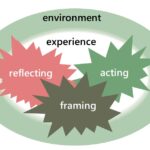The path to becoming a Certified Ethical Hacker (CEH) can be achieved through two primary delivery formats: education and training. While both approaches cover the same core content, they differ significantly in their structure, duration, and learning experience. Understanding these differences is crucial for aspiring ethical hackers to choose the path that best aligns with their learning style and career goals.
The Academic Approach to Ethical Hacking
In an academic setting, such as EC-Council University (ECCU) or its partner institutions, the CEH program is typically delivered over a semester, spanning 8 to 12 weeks. This format offers a comprehensive and academically rigorous learning experience.
Students participate in traditional lectures, complete hands-on lab work, engage in online discussions, and undergo mid-term and final assessments. Successfully completing the course earns students college credit. Certification requires independently taking the CEH exam after the course concludes. This structured approach provides a strong foundation in ethical hacking principles and practices.
The Boot Camp Approach to Ethical Hacking
Alternatively, CEH training is often delivered in a condensed 5-day boot camp format, available both in-person and online. This immersive approach involves intensive lectures followed by extensive hands-on practice, allowing participants to quickly acquire and apply the knowledge learned.
This accelerated format is often referred to as the “firehose” method, immersing students in the entire CEH domain set. Typically, 2.5 days are dedicated to practical lab exercises. Many Authorized Training Centers (ATCs) offer the CEH exam at the end of the boot camp, enabling participants to complete training and certification within a week.
Post-training, individuals have continued access to course materials for two years and hands-on labs for six months. CEH training also includes access to resources like the Engage Practice Range, Global CEH Competitions, and CodeRed learning libraries for ongoing skill development.
Choosing the Right Path: Education or Training?
The best path for learning ethical hacking depends on individual learning preferences and circumstances. The academic route offers a more structured, in-depth exploration of ethical hacking principles, while the boot camp format provides a rapid immersion in the subject matter. Consider your available time, learning style, and desired level of academic rigor when making your decision.
